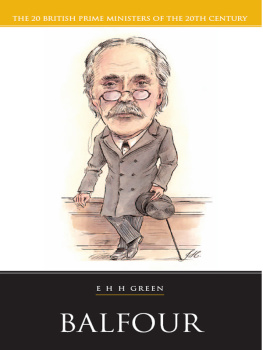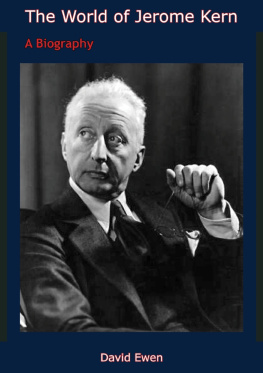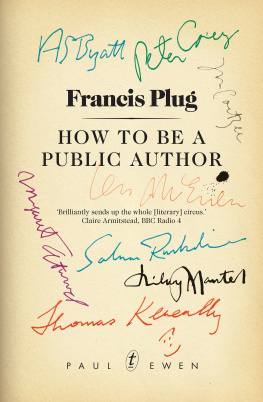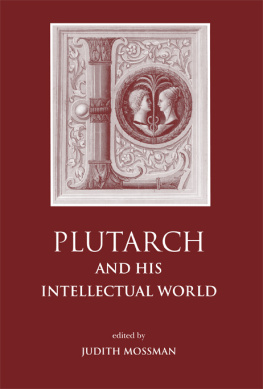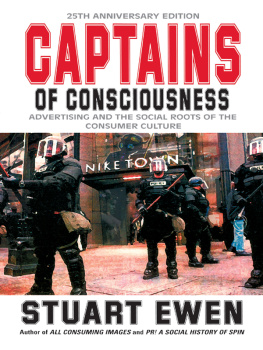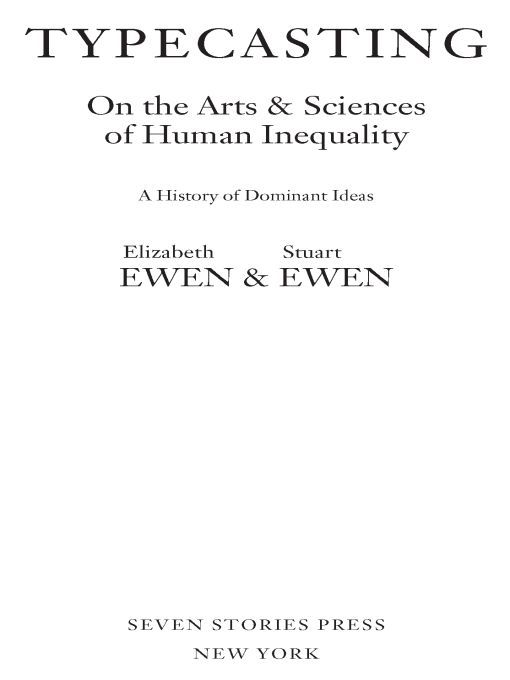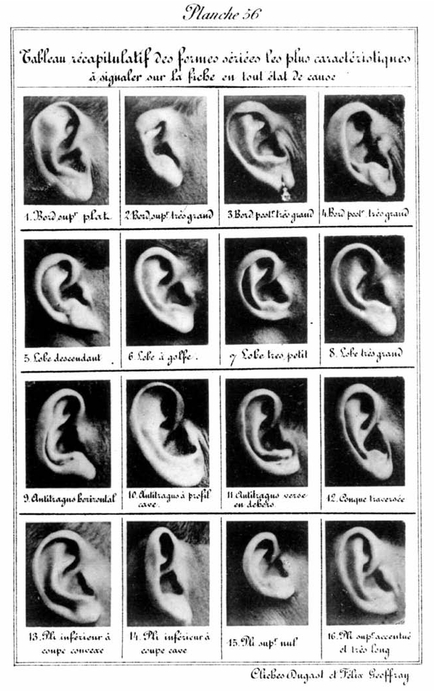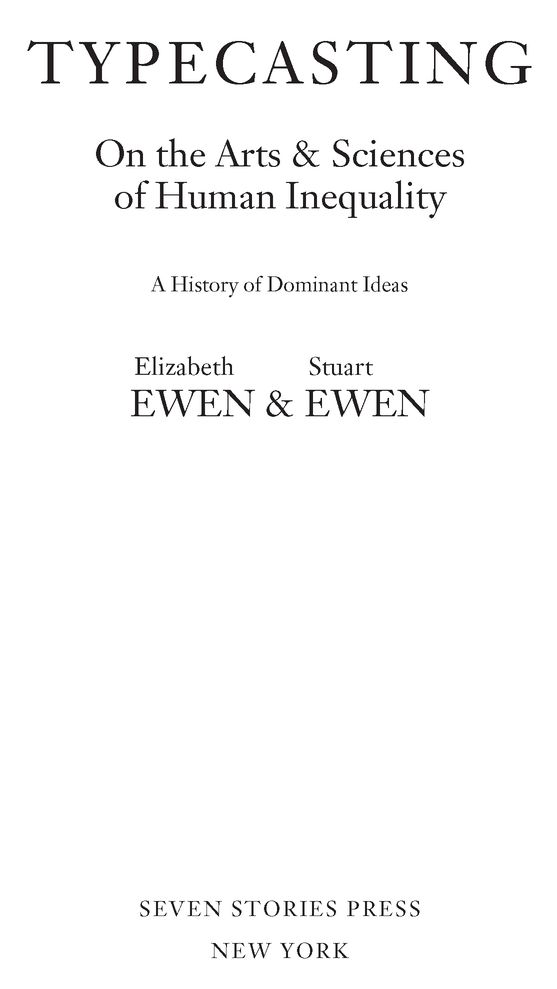Table of Contents
In capable prose, media historians Elizabeth and Stuart Ewen describe the way minstrel shows, films, thesaurus-making, criminal anthropology, and the Adam and Eve story developed or prolonged the notion that society was divided between those whose fertility should be encouraged and those whose hereditary lineage called for curtailment.
Utne
This surely is one of the great and important books of 2006. Their book is a huge and exhaustive history of the allure of the simple, and the absurdly complicated pseudoscientific lengths our species continually goes to reaffirm it.
Editors Choice, Buffalo News
An encyclopedic browse through the annals of stereotyping... Typecasting does an excellent job of reminding us just how fearful of racial degeneration some of our recent ancestors were.
Terry Eagleton in the London Review of Books
Typecasting: On the Arts and Sciences of Human Inequality is a plain-terms, no-holds-barred look at the long-running practice of science warped to serve prejudice.... An absolute must-have for sociology shelves, enthusiastically recommended for public and college libraries alike.
The Midwest Book Review
In this encyclopedic collection of brief but intense essays, the Ewens trace the origins and manifestations of typecasting or stereotyping and the myths largely perpetrated for the purpose of maintaining power and establishing hierarchies of race, ethnicity, gender, and class.... The Ewens have provided a valuable history, but Typecasting also sheds needed light on the processes of persuasion and misinformation today.
Steven Heller, Eye
Typecasting urges its readers to become more than passive recipients of cultural knowledge, to change their community by resisting ides reues.... They present extensive proof that an apathetic public, a public free of skepticism, can easily be led astray.
Maxwell, Heller, Brooklyn Rail
Bertillons chart of criminal ears. COURTESY OF THE PREFECTURE DE POLICE, PARIS
For our grandchildren,
Stella Wunder Ewen-Tanaka and Henry Cleveland Ewen,
who transcend all types
&
In memory of Stephen Jay Gould,
who transcended the limits of knowledge
Every way of seeing is also a way of not seeing.
Helen Merrell Lynd
If we are ever to understand human behavior we must know as much about the eye that sees as about the object seen.... [T]he eye that sees is not a mere physical organ but a means of perception conditioned by the tradition in which its possessor has been reared.
Ruth Benedict
The one duty we owe to history is to rewrite it.
Oscar Wilde
How thinkest thou that I rule this people?... It is not by force. It is by terror. My empire is of the imagination.
Ayesha, white Queen of the Lost City of Kor in Central Africa, in H. Rider Haggards 1886 novel, She
ACKNOWLEDGMENTS
While this book relied on a great deal of primary research, it could not have been written without the pathways of thought, research and imagination laid by a number of pioneering scholars and artists. Among these is the person to whom this book is, in part, dedicated, Stephen Jay Gould. His The Mismeasure of Man and the multivolume series Reflections in Natural History, were powerful sources of inspiration from beginning to end. Though we take issue with some of his specific arguments, his vision was extraordinary. The writings of our teacher and friend, George L. Mosse, along with discussions we had before his death, were also of enormous value as we began to frame this book. Though very different, Eduardo Galeanos Memory of Fire trilogy had a profound influence on our approach to writing this book.
Others influential voices, who guided us along the way, include Richard D. Altick, Walter Benjamin, Edwin Black, Robert Bogdan, Donald Bogle, Sterling A. Brown, W. E. B. DuBois, George M. Frederickson, Henry Louis Gates, Jr., Mary Gibson, Sander Gilman, David Hockney, Matthew Frye Jacobson, David Levering Lewis, Walter Lippmann, Tommy Lee Lott, Stanley Nelson, Elaine Pagels, Kathy Peiss, Sandra S. Philips, Nicole Hahn Rafter, Ruth Richardson, Naomi Rosenblum, Londa Schiebinger, Allan Sekula, Philip Steadman, Madeleine Stern, Robert C. Toll, Immanuel Wallerstein, Carla Williams and Deborah Willis. A book by Daniel Pick, Faces of Degeneration, ,provided us with eloquent phrasing for the titles of Part Three. These people, of course, are not alone. Our notes and bibliography provide additional names and sources. Without apology, we would also like to thank Google for putting an enormous number of indispensable resources at our fingertips.
In 2004 Justin Kazmark contacted us and volunteered to serve as our Research Assistant. Though we had never met him, initial discussions revealed a serious and intelligent person with a keen interest in history. Bringing him into this project was an excellent decision. He has been an invaluable ally in the making of this book. The generous advice of Paul Breines, Enid Schildkraut, Andrew Mattson, Rosalyn Baxandall, Gretel Smith Ewen, Steven Heller, Larry Sullivan, Yuri K. Chistov, Vladimir Ilyan, Richard Lan, Margaret Schotte, Eno Mezini and Seyla Martayan are also deeply appreciated. In putting together images for this book, we received significant guidance and assistance from Barbara Mathe and Emily Lanzara, Archivists at the American Museum of Natural History; Deborah Willis, Professor of Photography at the Tisch School of the Arts at NYU; Frank Luca, Jacqueline Crucet, Cathy Leff and Kate Rawlinson of the Wolfsonian Museum in Miami Beach; and James Andrew Wagstaff and Jeremy McGraw of the New York Public Library.
Mira Felner, Kristin Muncheimer, Seanna Brown, Kathe Sandler, Joseph Orefice, as well as Kathryn and Mick Hurbis-Cherrier were also helpful in identifying and/or securing important sources. Archie Bishop made critical contributions to the visual and conceptual tone of the book. In prior books (All Consuming Images and PR! A Social History of Spin), Bishops sidebar visual essays provided a creative supplement to the main body of the works. In Typecasting, again, some of his visual essays make an appearance. Andy Ewen also produced original art for Typecasting, and Alice Arnolds creative assistance and advice were invaluable
For us, writing is inextricably linked to teaching. Presenting the material that follows and discussing it with students was one of the best ways to judge whether ideas and information were being clearly articulated. The feedback that resulted from teaching was a vital part of our creative process. In light of this, we are privileged to thank our students at Hunter College, the CUNY Graduate Center, and SUNY College at Old Westbury for their help.
In the years consumed by the writing of this book, conversations with friends and colleagues have been illuminating. Linda Gordon, Serafina Bathrick, Allen Hunter, Sheila Rowbotham, Julie Kaye Reich, Chuck Reich, Gail Pellett, Stephan Van Dam, Steve Resnick and Stephen Duncombe have been there for years and have been treasured critical advisors. Jeanne Saltsman, David Pavlosky, Chistopher Hobson, Ann Cohen, Robert Marino, Aubrey Bonnett, Amanda Frisken, Lois Stergiopoulos and Mary Jeys also played an important part in the carrying out of this work.



